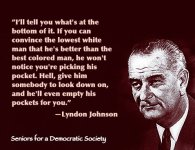That is true for truly randomly selected samples from the same population. Unfortunately for your argument that is not true here. These police are not homogenous throughout the USA so these samples do not come from the same population nor are they necessarily random.
The non-random factors are equally likely to bias in favor of an inflated difference as a underestimated difference. For example, small agencies that deal with little violence and arrests and thus only have a shooting every couple years are less likely to report. IF those agencies deal mostly with whites and the people shot are white, then whites are being more undercounted. Thus, since the random errors in small samples produce inflated estimates of group differences, it is still more probable that the given 3:1 ratio is inflated than that it is an underestimate.
Also, I bolded the 4 distinct different arguments related to the methodologies precisely so you wouldn't "accidentally" overlook the others and respond to only one of them and think you've defended your dismissal of the most valid evidence available related to rates of shootings by cops. Yet, you still managed to ignore 3 of the 4 points, and only offer an invalid argument against one.
What about convergence in the findings with the results of other data collection methods between the CDC, FBI, and BJS? What about the fact that a much higher % of the actual relevant agencies that would plausibly have shooting deaths during arrests are included in the report, because very few agencies categorized as "law enforcement" are relevant? What about the fact that even if the ratio is 8:1 it would still be completely in line with cops responding to deadly threats, because that is the ratio of the most serious violent crime rates (e.g., homicide) between blacks and whites?
In addition, there is the data I posted in another thread showing that blacks are many many times more likely to shoot at cops, and in fact, the ration of how often blacks are shot relative to how often they shoot at cops is lower than that same ratio for whites. IOW, if you shoot at the cops, you are much more likely to be shot and killed by the cops if you are white than if you are black.
That must explain the recent shootings of unarmed black men as well.

Once again you show total ignorance in statistical understanding and the difference between explaining aggregate trends vs. individual cases. Your argument is identical to that of the anti-science climate change deniers why blindly dismiss the evidence of human impact of climate change by saying "Gee, that must explain why this was the coldest winter in a century in my town."
The cause of differences in aggregated rates need not have anything at all to do with causes of individual shootings. It is logical fallacy to treat them as the same. One could be do to racism and the other not, or both could have nothing to do with racism but the causal factors are distinct. They are completely different kinds of questions. The question for the aggregate data is why are blacks more likely to be shot than whites? The question regarding an individual is why were they personally shot? Unarmed white people are shot also, so the same question must be asked about them too. Unless you are going to say that both unarmed blacks and unarmed whites are shot due to racism, then you are compelled (assuming you care about being reasonable), to recognize that many of the unarmed blacks that are shot are shot for similar reasons as unarmed whites are shot. Thus, unless you have evidence of racism specific to that individual case, you don't have evidence that the shooting would not have occurred if the person were white. The only thing you can do is try to point to aggregate stats as evidence of racism and thus evidence of racism in that specific case. Besides being logically fallacious, it requires that the aggregate stats show something different than would be expected in the absence of racism. They do not. That is what this thread is about. That is what explaining the aggregate stats is about.
There is no evidence that blacks are shot at rates higher rates than are predicted in the absence of the cops being racist. Differential rates of shootings are NOT evidence of this. They are only evidence if the difference in rates is not predicted by the non-racist factors that ought to impact shootings by cops doing their job. If anything, the evidence of actual rates that is available shows blacks are shot less often than expected, given the even larger difference in rates of violent crime, gun possession, and shooting at the cops.

